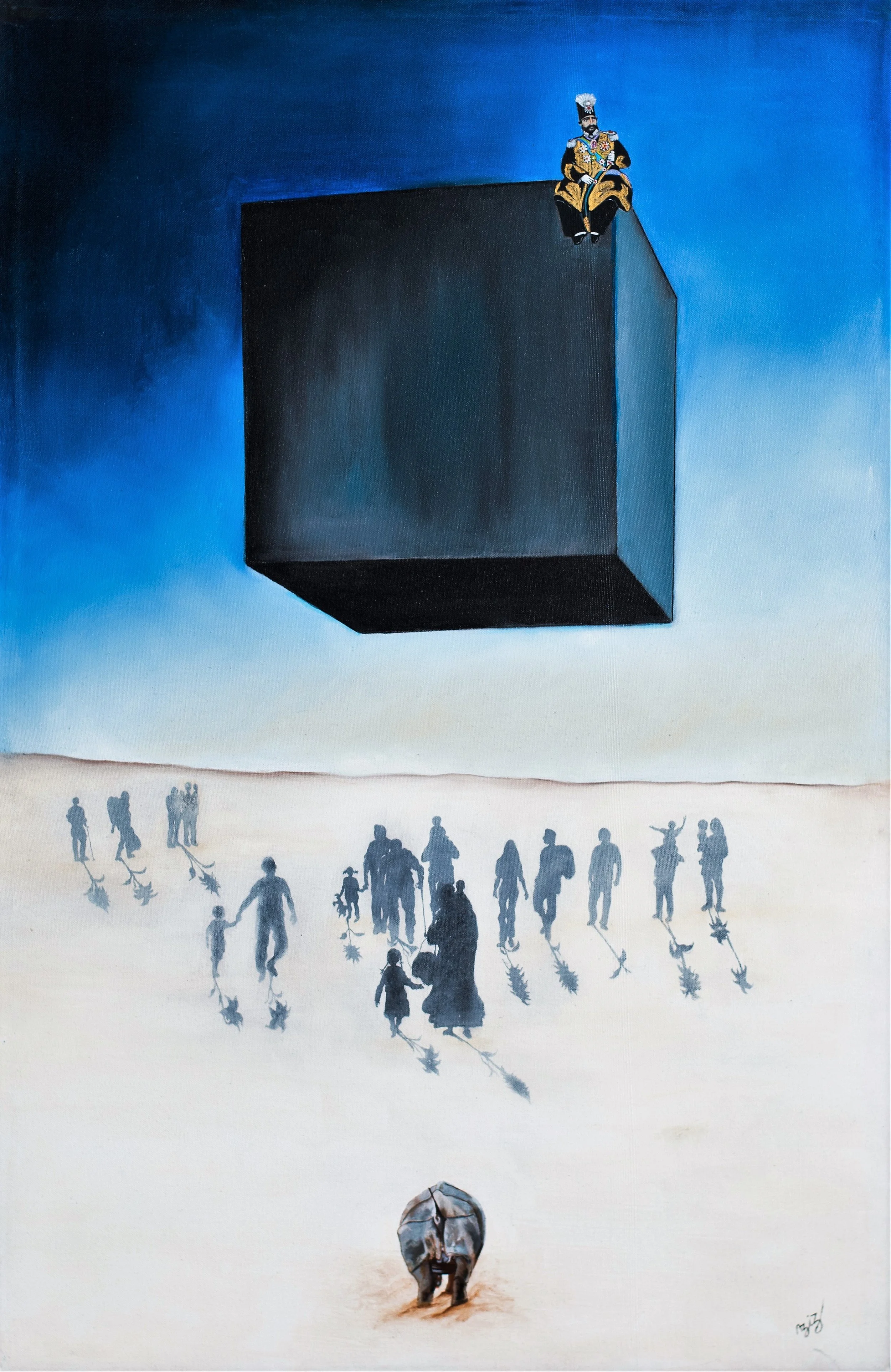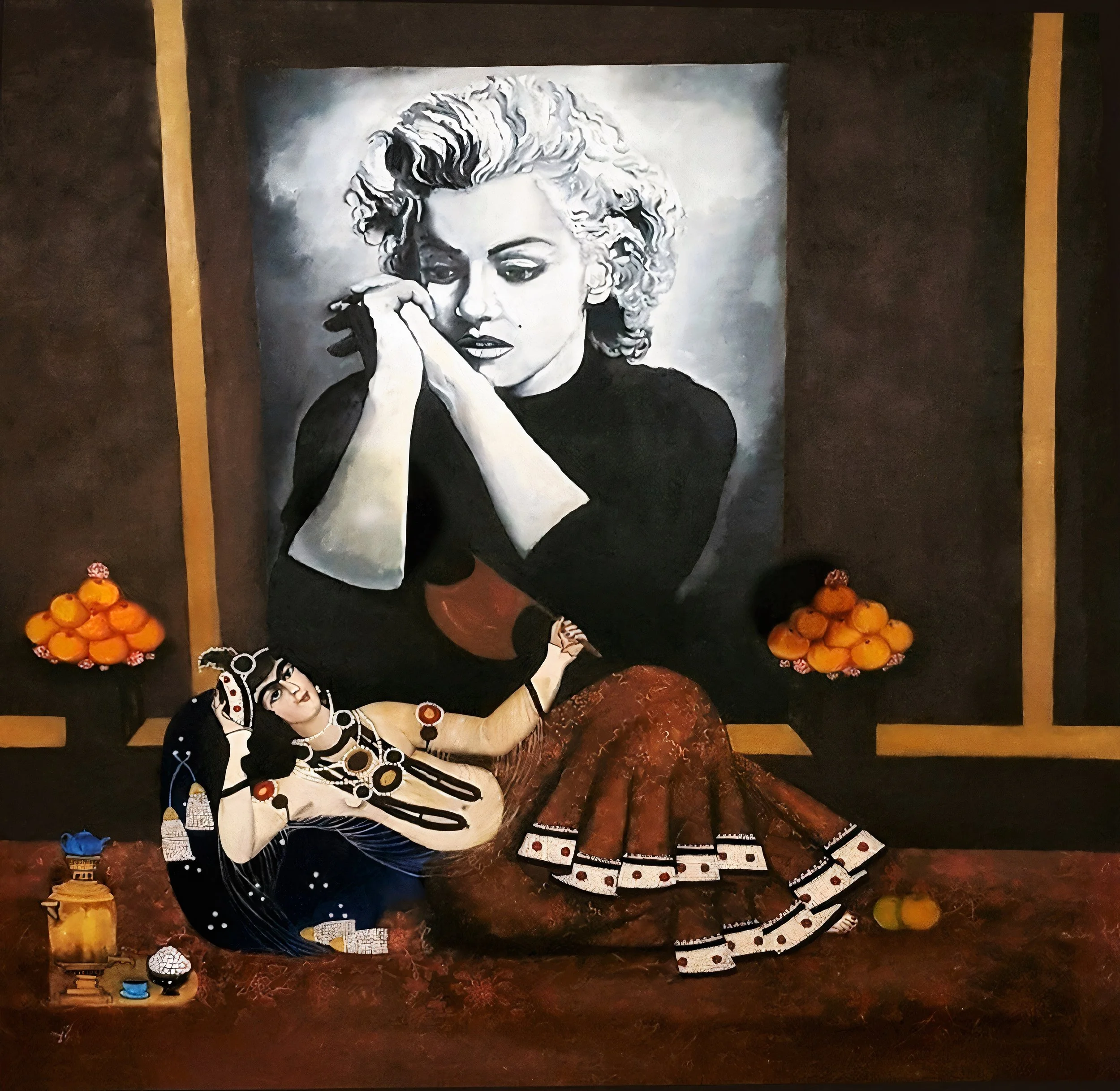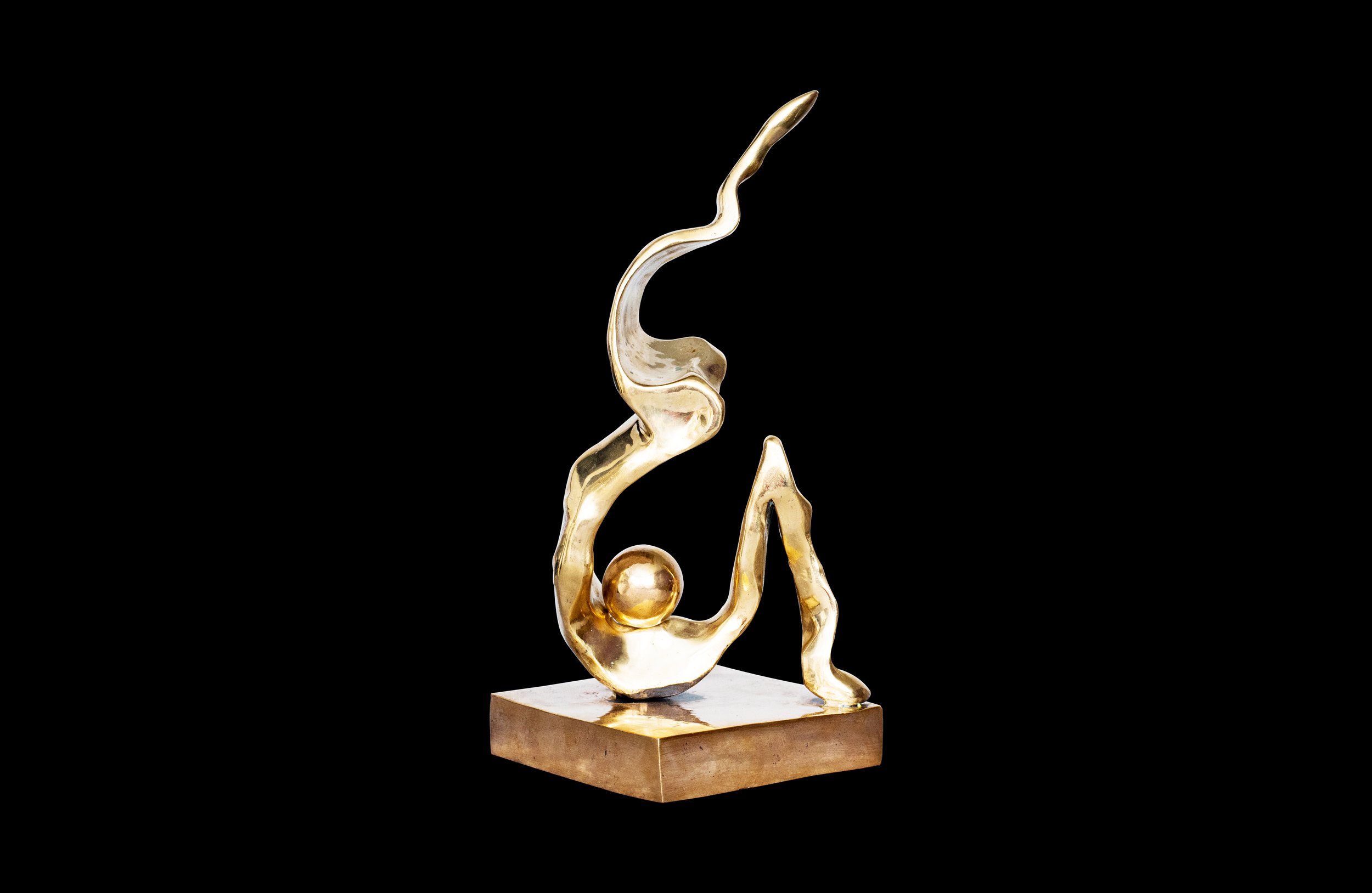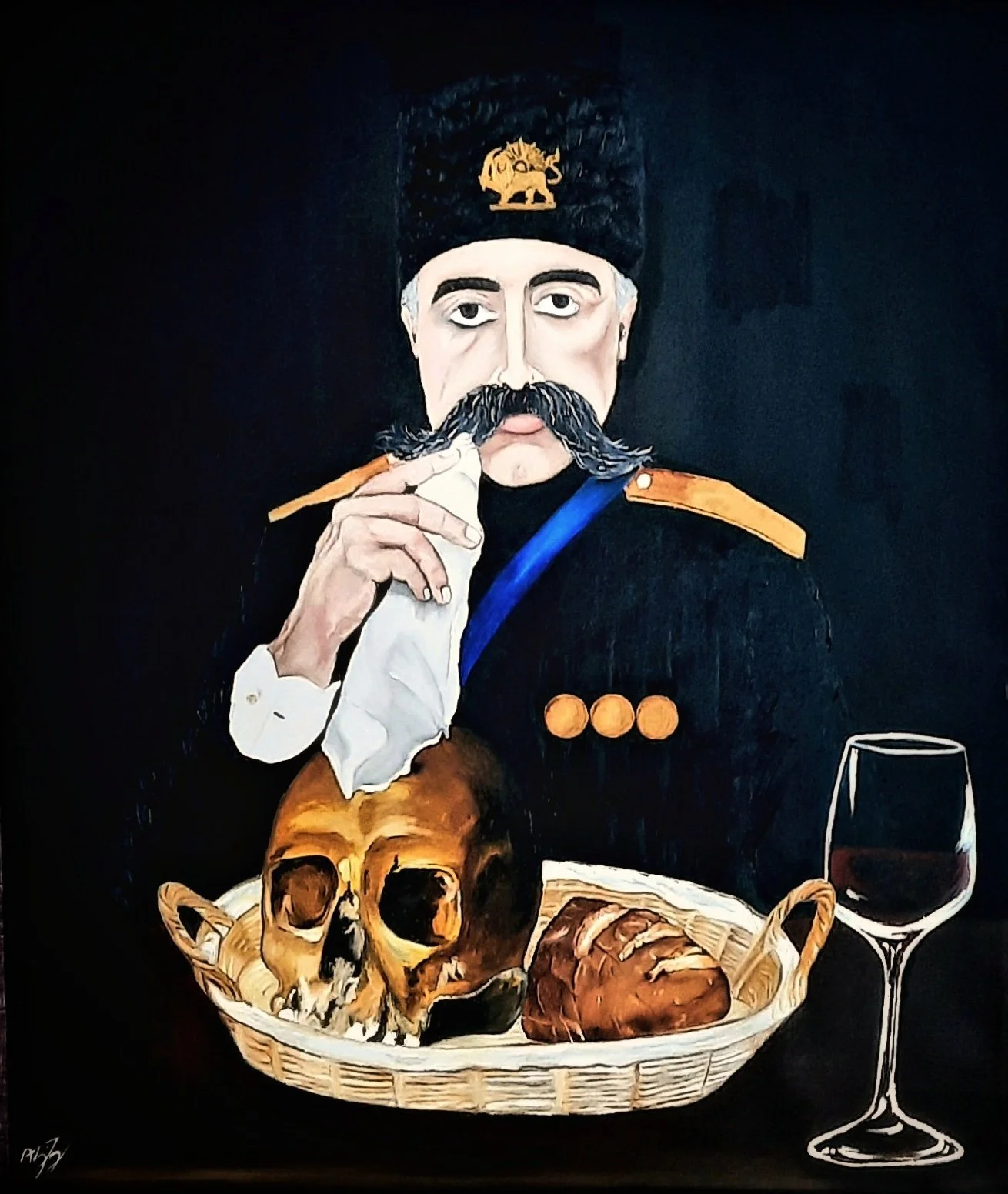AZIZ ANZABI

“The most creative man I’ve met.”
Painter and sculptor Dr. Aziz Anzabi is originally from Iran and now London-based. His father, a cement sculptor, pushed him to become an artist.
”My base technique is to use real-life natural events to create artworks with images or words from an imaginary world. In my sculptures and painting, both figurative and abstract, I employ these aspects of a collective unconscious to evoke an emotional state within the viewer. In my figurative work, my goal is to capture the myriad changing state of the human condition through subtle changes in facial countenance and body language. The end result shows how the inner condition is expressed by the outward form while also conveying a timeless quality to human emotion. In my abstract sculptures, I have recreated the numinous quality of subconsciously shared images, stories, and ceremonial rites. The sculptures, themselves, are composed of abstract forms that are covered with a rich, textured surface. The end result is a complex, organic piece that evokes a sense of ancient artifacts, of ritualistic objects from some unknown culture, or of imagined landscapes. My ultimate goal is to have the viewer feel a sense of familiarity with the work; a sense of having experienced this before.”
Aziz Anzabi, Journey to Hope
Anzabi uses continuity to potential collections of art to bring together a new concept originated from Iran. he is also an academic and has written and produced books on the subjects of art and mathematics. Anzabi was previously a professor at Tehran University. As an artist, he strives to blend traditional and contemporary art forms. One particular fascination is the Qajar style, which is the only Iranian style that boasts a distinctive framework and techniques. Its uniqueness sets it apart from other styles, making it a valuable source of inspiration for his work.
Growing up during the Iran-Iraq conflict, he found inspiration in Iranian artists like Bahman Mohasses and modern poet Sohrab Sepehri. Sohrab Sepehri's works delve into themes such as exile and oppression, free speech, and more, using techniques such as timeless sequences, fantasy landscapes,and distorted forms among others. His art aims to create political awareness and expose suffering, while also bringing the past and his own memories to life.
Aziz Anzabi, Marilyn Monroe, Captive Qajar Lady
Aziz Anzabi, Inside of Me 11
Aziz Anzabi, Festival of Death
“My artworks delve into the complexities of power, cruelty, and modernity. Through visual poetry, I explore the intertwined nature of these themes. My art is characterized by poetic activism, investigating the various forms of violence and promoting the awakening of conscience in a standardized world. Surrealism is also a prominent feature in my works.”




